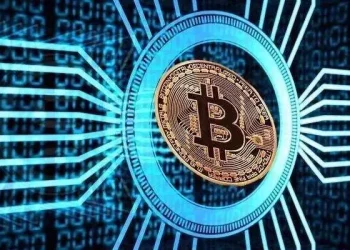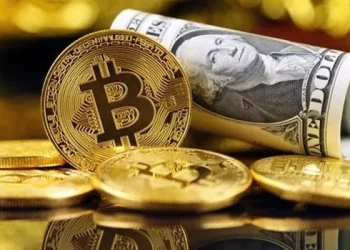Kraken is one of the most well-known and widely used cryptocurrency exchanges in the world. As cryptocurrency continues to gain global traction, it is essential for both new and seasoned investors to understand the platforms they use, including where they are located. Knowing the geographical location of an exchange provides insight into its regulatory environment, legal standing, and how it operates across different countries.
In this article, we will explore the location of Kraken exchange, its history, the regulatory landscape in which it operates, and how this affects its users. Kraken’s location is key to understanding how it operates on a global scale and what makes it one of the leading exchanges in the crypto market.
1. Overview of Kraken Exchange
Kraken was founded in 2011 by Jesse Powell, an entrepreneur with a strong background in cryptocurrency and the financial world. The exchange is known for its reliability, security features, and the range of cryptocurrencies it supports. Kraken’s growth over the years has been notable, earning it a reputation as one of the oldest and most trusted cryptocurrency exchanges globally.
Kraken provides a platform for trading cryptocurrencies such as Bitcoin, Ethereum, Litecoin, and a variety of altcoins. The exchange also offers advanced trading tools for experienced traders, including margin trading, futures, and more. Kraken aims to serve both beginners and professional traders with a secure and user-friendly interface.
2. Where is Kraken Exchange Located?
Kraken’s headquarters is located in San Francisco, California, United States. The choice of location is significant for a few reasons, including its proximity to Silicon Valley, the world’s tech capital, and its presence in the U.S., a country with some of the most stringent financial regulations. Kraken’s physical presence in the U.S. allows it to operate in compliance with local regulations and provide services to American residents and global customers alike.
In addition to its headquarters in San Francisco, Kraken has expanded its presence globally with offices in various countries. This global presence enables Kraken to better serve its international user base and comply with regulations in multiple jurisdictions.
3. Regulatory Environment and Licensing
Operating out of the United States, Kraken must comply with various U.S. regulations. This includes regulations from agencies such as the Securities and Exchange Commission (SEC), the Commodity Futures Trading Commission (CFTC), and the Financial Crimes Enforcement Network (FinCEN). Kraken’s adherence to these regulations ensures that it provides a safe and compliant trading environment for its users, particularly for American customers.
Kraken is also known for being one of the first cryptocurrency exchanges to undergo regulatory scrutiny and operate within a regulatory framework. Kraken has taken steps to ensure that it adheres to anti-money laundering (AML) and know-your-customer (KYC) regulations, which help prevent illicit activities on the platform. Kraken’s compliance with U.S. laws has earned it a strong reputation in the crypto space, particularly among users concerned about security and regulatory issues.
Furthermore, Kraken is registered as a Money Services Business (MSB) with the U.S. Treasury Department’s FinCEN. This registration requires Kraken to comply with regulations that monitor financial crimes and ensure that the exchange does not facilitate illegal activities.
4. Global Expansion and Presence
While Kraken’s headquarters are based in San Francisco, the company operates in multiple countries worldwide. The exchange has made significant strides to expand its services globally, making it accessible to users from various regions. Kraken’s global footprint means that the exchange can offer localized services, support a variety of languages, and cater to the needs of users in different time zones.
Kraken operates in countries such as:
United Kingdom: Kraken has an office in London, and it serves U.K. residents by offering access to GBP (British Pound) deposits and withdrawals.
European Union: Kraken also provides services across the European Union, with support for multiple currencies like the Euro.
Canada: Kraken offers services to Canadian users, with localized support for CAD (Canadian Dollar).
Australia: Kraken has extended its services to Australian residents, allowing them to trade cryptocurrencies with Australian Dollars (AUD).
Japan: Kraken entered the Japanese market after acquiring the Bit Trade platform in 2018, making it one of the few exchanges to obtain regulatory approval to operate in Japan.
Kraken’s international operations make it a truly global exchange, and its localized services help it cater to the needs of users around the world.
5. Legal and Tax Considerations
As a U.S.-based cryptocurrency exchange, Kraken is subject to American tax laws and legal frameworks. Users trading on Kraken are responsible for understanding the tax implications of their trades in their respective countries. In the United States, for example, the IRS treats cryptocurrency as property, meaning that users must report capital gains or losses from their crypto trades on their tax returns.
Kraken assists its U.S. users by providing them with tools and resources to help them stay compliant with tax regulations. The platform offers features such as trading reports and transaction history downloads, which can be helpful during tax season. Kraken also provides KYC verification to ensure that users meet regulatory requirements and that transactions are transparent for tax purposes.
The exchange’s commitment to adhering to U.S. tax regulations helps ensure that it remains compliant and can operate legally within the United States. For international users, Kraken aims to comply with local tax laws as well, helping them remain compliant in their own jurisdictions.
6. Kraken’s Security Standards and Why Location Matters
Kraken is widely recognized for its emphasis on security, a crucial factor for any cryptocurrency exchange. The platform has consistently ranked highly in terms of security, earning the trust of users worldwide. The fact that Kraken is based in the United States, with its stringent regulatory environment, means that it must maintain robust security practices to protect its users.
Kraken uses industry-leading security protocols, including:
Cold Storage: A large majority of Kraken’s cryptocurrencies are stored in cold wallets, which are not connected to the internet, significantly reducing the risk of hacks.
Two-Factor Authentication (2FA): Kraken encourages users to enable 2FA to add an extra layer of protection to their accounts.
Advanced Encryption: Kraken employs state-of-the-art encryption to protect users’ data and funds.
Regulatory Oversight: Being located in the U.S., Kraken is subject to oversight from regulatory bodies that ensure the platform operates in a secure, transparent manner.
Kraken’s strong security practices are enhanced by its location in a region that enforces strict financial regulations, which further increases the trust and reliability of the exchange. Users can feel confident that Kraken’s platform is secure and compliant with U.S. laws.
7. Kraken’s Impact on the U.S. Cryptocurrency Industry
Kraken has played a vital role in shaping the U.S. cryptocurrency industry. As one of the largest and most prominent exchanges based in the U.S., Kraken has contributed significantly to the development of the American crypto ecosystem. Kraken has advocated for favorable regulatory policies for cryptocurrency and blockchain technology, ensuring that the U.S. remains competitive in the global digital asset market.
Kraken’s success in the U.S. has helped pave the way for other exchanges to enter the market, fostering competition and innovation. By adhering to U.S. laws, Kraken has also helped establish a precedent for other exchanges seeking regulatory approval in the U.S., highlighting the importance of compliance in the crypto industry.
8. Customer Support and Global Services
Kraken’s commitment to serving users worldwide is reflected in its customer support infrastructure. The exchange offers customer support in several languages, ensuring that non-English-speaking users can easily navigate the platform. Kraken’s support team is available 24/7 to assist with issues such as account recovery, withdrawal problems, and general inquiries.
The exchange also provides a comprehensive knowledge base, which includes guides, tutorials, and frequently asked questions. This user-friendly approach ensures that both new and experienced traders can access the information they need to use Kraken’s platform effectively.
9. The Future of Kraken and Its Location
As cryptocurrency continues to evolve, Kraken’s location and expansion strategy will likely play a key role in its future success. The company’s headquarters in San Francisco provide it with access to a talented workforce, cutting-edge technology, and a strong regulatory environment. Its global expansion ensures that it remains competitive in the international market, offering services to users in multiple countries.
Kraken has also made significant strides in the regulatory landscape by pursuing licensing and operating under the regulations of various jurisdictions. This proactive approach will allow the exchange to adapt to evolving laws and maintain its reputation as a secure and compliant platform.
Conclusion
Kraken Exchange is headquartered in San Francisco, California, but its influence extends across the globe. The exchange’s commitment to security, compliance, and regulatory adherence has made it one of the most trusted and reliable platforms in the cryptocurrency industry. Kraken’s operations are governed by strict U.S. regulations, which ensure its compliance with financial laws and provide users with a secure and transparent trading environment.
With its global reach, robust security protocols, and dedication to regulatory compliance, Kraken continues to play a pivotal role in the cryptocurrency industry. Whether you are an experienced trader or a newcomer to the world of digital assets, Kraken’s location and operational structure provide users with the confidence and support they need to navigate the cryptocurrency space safely.
Related topics:

















